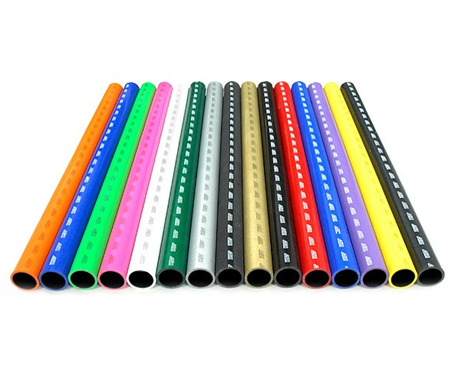No matter how well it’s been doing its job, eventually rubber will let us down – it will split, slip off, or simply leak. In extreme cases it mangles up so badly it’s a struggle to remove. Rubber failures can be surprisingly costly. Silicone conjures a different picture in most people’s minds, but is it any less likely to deflate our expectations?
Silicone and rubber both have their place, but silicone has some key advantages. Here are just five.
![]()
Less noise
Rubber is not only inclined to squeak, sometimes loudly, but can accentuate other noises too – like knocking and gurgling. Even when you don’t hear it, rubber transmits vibrations between components that can contribute to their slow degradation, or be felt in the cab.
Test figures from silicone hose manufacturers show that silicone is an excellent damper of sound and vibration.
More colour
Looks aren’t everything, but they sure do help. A colourful motor is easier to find your way around – especially in the dark, and you are always in a dark place when it needs emergency attention.
Bright clean silicone is preferred by enthusiasts who look after their engines and like to show them off. Silicone hoses demonstrate TLC to prospective new owners. See some of the colours here https://www.goodflexrubber.com/pages/silicone-hose-manufacture.
Greater flexibility
In an ideal world everything is connected – in the real world it never reaches. But you’ve got a much better chance with silicone, because it’s more flexible than rubber. That’s especially true when things get older: rubber hardens and eventually cracks.
Longer lifespan
Silicone hoses will probably outlast your car, rubber won’t. Remember this when you compare costs because what really matters is the eventual cost per mile.
Higher temperatures
Metal hoses are inelastic and loosen when they get hot. Silicone still grips, and it withstands higher temperatures than rubber, (https://polymerdatabase.com/Elastomers/VMQ.html).
Temperature becomes a concern if you have other car problems, go racing with it, or add a turbocharger, but improving the heat tolerance of your components is never a bad thing.
Fewer drawbacks
Silicone is less chemically resistant to petrol, certain oils and super heated steam. For this reason you shouldn’t use silicone for fuel lines unless it has been given a fluoro lining.
If you’re in any doubt, all the technical data is available. Almost everyone can brighten up their day with silicone hose!

